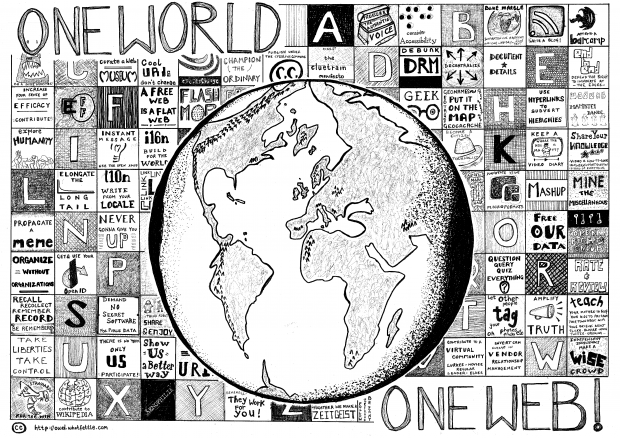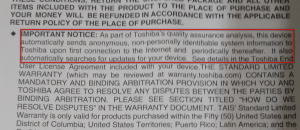Ever heard of six degrees of separation? It is the idea that everyone in the world is only six degrees (steps) away from each other. Professor Albert-László Barabási of Northeastern University has proposed something similar to the Internet. Except, instead of six, there are nineteen degrees.
According to Barabási, the Internet is, more or less, nineteen clicks wide. In other words, if the Internet was a circle, in nineteen clicks (i.e. nineteen links) you could reach from one end to the other. How is this possible? Thanks to four “organizing principles”:
- Scale-free – The idea that a large network (the Internet) is made up of smaller networks, and larger nodes within the network more connected than smaller nodes
- Small world – The idea that two nodes are connected somehow, someway no matter how large a network may be
- Preferential attachment – New documents, files, links, pages, etc. are likely to link to older documents or websites that are already highly connected
- Fitness – How likely other websites will link to a new website
So what does that mean in layman’s terms? It means that new content on the web often links to older, more established content. This older content (e.g. a website like Google) already has many established connections which is why new websites link to it to try to gain awareness. The web rotates around these few select, well-connected websites. By new websites connecting to these well-connected websites, it shortens the degrees of separation between websites because these websites serve as hubs. Hence nineteen clicks.
Insane.
[via RoyalSocietyPublishing, Geeks are Sexy, image via psd]

 Email article
Email article




